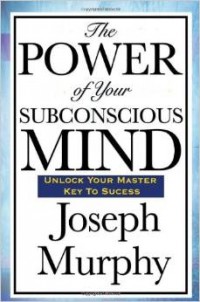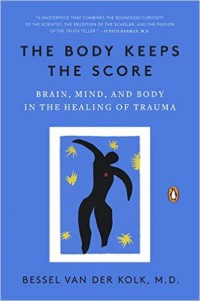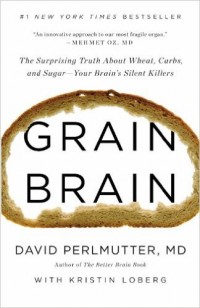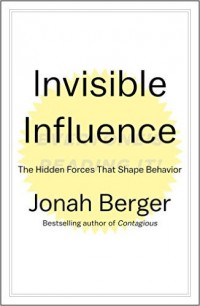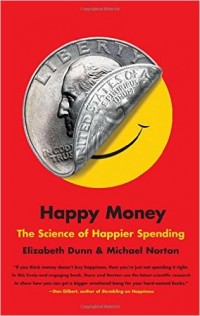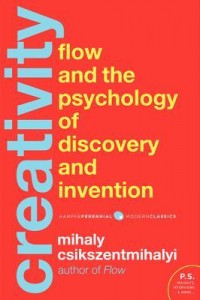
Summary in a sentence:
It is possible to live a good, fulfilling, moral way of life without subscribing to an indoctrinated set of beliefs.
Overview: Waking Up by Sam Harris
Okay, so Sam Harris is a super-controversial fella; primarily due to his beliefs — or lack thereof — as an Atheist (meaning he doesn’t believe in God), and the massive influence he has on the Atheist community (as well as those who remain Agnostic to religion altogether.) He also happens to be a Neuroscientist that openly criticizes every religion outside of Atheism … So, if you can swallow that — and if you can do your best to avoid taking personally anything that seems like an attack on your beliefs — religious or otherwise — then you may benefit from reading this book.
In this FlashNotes book summary, we’re going to keep it as un-offensive as possible by focusing primarily on the actionable insights gained from this book — because there are a TON of nuggets of wisdom in here — and nearly every idea he proposes really makes you think (as in: sit there and ponder about the implications of his ideas).
Side note: Harris says that 20% of Americans consider themselves as “spiritual but not religious” (if that’s you, then you might really enjoy reading the original book after you’re done with these FlashNotes)
In all honesty, I’ve never read anything like this before… there aren’t many people that can package, present, and unpack ideas the way Sam Harris can.
It’s the polarity between his perspective as opposed to everyone else’s that makes him so unique and interesting. On one hand, Harris seems to come off just as un-empathetic to religious people as biologist and fellow Atheist, Richard Dawkins. On the other hand, Harris seems to genuinely care about helping people embrace a scientific approach to spirituality.
His background as a neuroscientist explains some of the reasons why he seems to be bashing every religion on the planet — and coming off as ignorant to the implications of the various Holy books (Old Testament, Bible, Quran, etc.) in the process. For example: the differences between literal interpretations of a Holy Text vs the metaphorical interpretations of a Holy Text are totally different. But it seems as though Harris’ has a different perspective in that regard.
His background as a student of philosophy explains the spiritual side of Harris. The side that people misunderstand and misinterpret. The side that wants to teach the world that it is indeed possible to live a good, fulfilling life without being afraid of hell or being motivated to do good deeds to get to heaven… I mean, wouldn’t we want to do good regardless?
From my perspective, I see a man who’s decided to do something most critics of religion do not — propose a solution. Most people complain about problems all day long, but rarely do they actually get up and make a valiant effort to solve the problem they spend so much time criticizing. In “Waking Up”, I see someone who took the time to craft an alternative path to spirituality than the one most people are used to… and all of it is within the same scientific train of thought from which his criticisms of organized religion were conceptualized.
In his own words, Harris puts it this way:
“I have been waiting for more than a decade to write Waking Up. Long before I saw any reason to criticize religion, or to connect moral and scientific truths, I was interested in the nature of human consciousness and the possibility of “spiritual” experience. In Waking Up, I do my best show that a certain form of spirituality is integral to understanding the nature of our minds. There is no discrete self or ego living like a minotaur in the labyrinth of the brain. And the feeling that there is—the sense of being perched somewhere behind your eyes, looking out at a world that is separate from yourself—can be altered or entirely extinguished. Although such experiences of “self-transcendence” are generally thought about in religious terms, there is nothing, in principle, irrational about them. From both a scientific and a philosophical point of view, they represent a clearer understanding of the way things are. My hope is that Waking Up will help readers see the nature of their own minds in a new light. A rational approach to spirituality seems to be what is missing from secularism and from the lives of most of the people I meet. The purpose of this book is to offer readers a clear view of the problem, along with some tools to help them solve it for themselves. I sincerely hope you find it useful.”
Side note: I can’t help but mention the fact that I have a hard time understanding why folks like Sam Harris or Richard Dawkins — or anyone who holds a strong, polar point of view — seem to lack the ability to empathize with people who hold opposing points of view, regardless of how “irrational” or “unscientific” they may be… If I’d made it my life’s work to inform and inspire non-believers to “wake up” to my own way of thinking, I would most certainly exhibit empathy towards the opposing point of view, or school of thought, before dropping “truths” and “facts” that fly in the face of what they’ve been conditioned to belief their entire lives.
I do believe that Richard Dawkins has become more empathic as of late; per the video below.
… Sam Harris however, needs quite a bit of work in this arena:
And by the way, this isn’t meant to discredit Harris in any way; as I believe that Wake Up was one of the most thought provoking books I’ve read in a long, long time… If I could however, respectfully provide one single suggestion to Harris when it comes to persuading people: align first, explain second. As Dale Carnegie writes about in “How To Win Friends & Influence People” – to get people to see from your point of view, you first need to see things from their point of view.
Now, let’s get back to the book notes…
Spirituality Without Religion
“There’s a connection between scientific fact and spiritual wisdom, and it is more direct than most people suppose. Although the insights we can have in meditation tell us nothing about the universe, they do confirm some well-established truths about the human mind — our conventional sense of self is an illusion. Positive emotion, such as love and compassion, are TEACHABLE skills. And the way we THINK directly influences our experience of the world.”
What Is Spirituality?
First lets look at how ‘spiritual‘ is defined.
spiritual |ˈspiriCHo͞oəl| adjective1 of, relating to, or affecting the human spirit or soul as opposed to material or physical things: I’m responsible for his spiritual welfare |the spiritual values of life.• (of a person) not concerned with material values or pursuits.
Interestingly enough, the word ‘spirit’ comes from the word ‘spiritus’ which is the Latin term for ‘breath’.
Harris says that people are confused about the word ‘spirituality’ and what it means, urging us to take the word seriously. How? Through the practice of meditation.
If you were to walk away from this book with only one ACTIONABLE insight — it would be the idea that we can experience a heightened sense of spirituality, well-being, and fulfillment with ourselves by the ongoing practice of meditation.
Meditation Instructions:
- Sit comfortably, with your spine erect, either in chair or cross-legged on a cushion.
- Close your eyes, take a few deep breaths, and feel the points of contact between your body and the chair or floor. Notice the sensations associated with sitting—feelings of pressure, warmth, tingling, vibration, etc.
- Gradually become aware of the process of breathing. Pay attention to wherever you feel the breath most clearly—either at the nostrils, or in the rising and falling your abdomen.
- Allow your attention to rest in the mere sensation of breathing. (There is no need to control your breath. Just let it come and go naturally.)
Every time your mind wanders in thought, gently return it to the sensation of breathing.
- As you focus on the breath, you will notice that other perceptions and sensations continue to appear: sounds, feelings in the body, emotions, etc. Simply notice these phenomena as they emerge in the field of awareness, and then return to the sensation of breathing.
- The moment you observe that you have been lost in thought, notice the present thought itself as an object of consciousness. Then return your attention to the breath—or to whatever sounds or sensations arise in the next moment.
- Continue in this way until you can merely witness all objects of consciousness—sights, sounds, sensations, emotions, and even thoughts themselves—as they arise and pass away.
Here’s a video I’ve recorded in case you’d like to hear these instructions out loud while you practice:
The Mystery of Consciousness
What is Consciousness? As defined by Harris and many others: Consciousness is the experience of “being”.
It’s the subjective feeling of knowing that a collection of atoms and molecules — is actually you.
It’s the awareness of YOU.
*Fun Fact —> Did you know that there aren’t any pain receptors in the brain?
The Self is an Illusion
“…the conventional sense of self is an illusion… spirituality largely consists in realizing this, moment to moment … Most of us feel that our experience of the world refers back to a self — not to our bodies precisely but to a center of consciousness that exists somehow interior to the body behind the eyes, inside the head … The feeling that we call “I” seems to define our point of view in every moment, and it also provides an anchor for popular beliefs about souls and freedom of will. And yet this feeling, however imperturbable it may appear at present, can be altered, interrupted, or entirely abolished … Subjectively speaking, the only thing that actually exists is consciousness and its contents.”
Heavy stuff. Definitely worth thinking about though… when we say “I”, what do we mean? Try to actually answer the question, “Where am “I”?” and see what you come up with… am “I” my body? My eyes? My mind? Am “I” a combination of it all put together? What am “I”? WHO am “I”?
Harris says that to be truly spiritual is to realize that there’s no such thing as a soul or spirit or self. Saying that a belief in a soul/spirit leads people farther from the truth of what actually is… this is very similar to the Buddhist train of thought.
The Riddle of The Self
Philosopher Derek Parfit once posed an experiment that went something like this… Imagine for a second that you lived in a world in which teleporting was actually real, and it was totally safe and normal to teleport from one planet to another. You haven’t tried it for yourself yet, but you know plenty of people who have. And they seem to be fine. In fact, these days, people seem to be teleporting to Mars like they were going on vacation. In other words: it’s no big deal.
You get curious, and you decide to do it too.
Now Imagine stepping into the teleporting machine and being put to sleep.
While you’re sleeping, the machine starts doing the same thing it always does: it destroys your physical makeup — breaking you down into atoms, and then copying your physiological makeup and transmitting it to Mars at the speed of light.
On Mars, another machine assembles a duplicate version of you — it re-assembles each atom in exactly the same place and position as before.
Boom. You’ve just “teleported” to Mars.
Now imagine the “real you” being back on Earth while waiting for confirmation that you’ve been duplicated in Mars before being destroyed (aka being killed).
Question: is the person on Mars the same person as the person who got into the teletransporter on Earth?
Here’s what Harris has to say about it:
“To most readers, this thought experiment would suggest that psychological continuity — the mere maintenance of one’s memories, beliefs, habits, and other mental traits — is an insufficient basis for personal identity. It’s not enough for someone else on Mars to be just like you; he must actually be you.
The man on Mars will share all your memories and will behave exactly as you would have. But he is not you — as your continued existence in the teleportation chamber on Earth attests. To the Earth-you awaiting obliteration, teleportation as a means of travel will appear a horrifying sham: You never left Earth and are about to die. Your friends, you now realize, have been repeatedly copied and killed.
And yet, the problem with teleportation is somehow not obvious if a person is disassembled before his replica is built. In that case, it is tempting to say that teleportation works and that “he” is really stepping onto the surface of Mars…
Parfit believes that we should view the teleportation case in which a person is destroyed before being replicated as more or less indistinguishable from the normal pattern of personal survival throughout our lives.
After all, in what way are you subjectively the same as the person who first picked up this book? In the only way you can be: by displaying some degree of psychological continuity with that past self. Viewed in this way, it is difficult to see how teleportation is any different from the mere passage of time.
…Parfit’s view of the self, which he appears to have arrived at independently through an immensely creative use of thought experiments, is essentially the same as the one found in the teachings of Buddhism: There is no stable self that is carried along from one moment to the next.”
… So what’s he talking about? What does this all mean to you and I? According to Harris, this implies that the thing we call “I” is all in our head. It’s not about having a soul or spirit. What people seem to be calling “I” is psychological. What this implies is, that we’re all part of the world and the world is part of us.
Heavy stuff.
Subscribers get access to the full version of this book summary.
Not a member yet?
Click here + get started for just $1 today.
Download one of the FlashNotes below to continue reading this summary:
